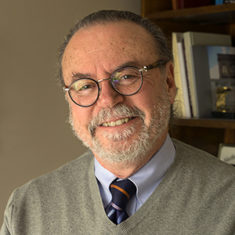Here Are Some Observations That Are Backed By Theory And Research That Not Everyone Considers, Probably Because Most Of Them Are Counterintuitive.
By Thomas J. Roach
Communication is like breathing. Most of the time we do it without thinking. That familiarity tends to make us feel that we know all there is to know about speaking and listening. Yet communication is a field of study that produces thousands of pages of research every year.
Here are some observations that are backed by theory and research that not everyone considers, probably because most of them are counterintuitive.
Communication defines the physical world. There is little about the world around us that we actually know from personal experience. Few of us can verify the tales of recorded history, the laws of science, or the complex mechanisms of the human mind and body. Our understanding of the world is constructed by teachers, authors, and experts, all of whom are legitimized by what is communicated about their credentials.
Communication defines culture. Most of our perceptions about the social environment are based on an accumulation of rules and expectations gleaned from the verbal cues coming from our family, friends and coworkers. We navigate through life according to an imaginary map composed of the utterances of peer groups.
Communication isn’t about making statements. It is a give-and-take process. Professional communicators anticipate audience reaction and carefully choose their words before they speak. Then they listen to the response and adjust their messages before speaking again.
Being honest is more important than being smart. There is no need discussing what is obvious; what we talk about are the things that require analysis – things that mostly cannot be proven. This means that the integrity of the messenger and the integrity of the channel persuade our hearers more than the message itself.
Consider the boy who cries wolf. His message is most effective the first two times he calls for help – when he has credibility, but he is lying. The third time, when he has lost credibility but is telling the truth, the message is ignored.
The person in your company who knows best how to service your customers isn’t the CEO, it’s the front-line employee. Companies that understand this spend less time sending messages down the chain of command and work to find more ways to move information up.
No one is right all the time, and no one likes being told what to do. Managers who demand blind loyalty and spend all their energy monitoring subordinates and telling them what to do generate mediocre products and services. Involving the workgroup in decision-making leads to better decisions and more motivated employees.
Mass media isn’t an impediment to modern mass democracy. Our nation of 350 million people has little in common with ancient Athens where an electorate of a few thousand voters attended forums and stopped on street corners to listen to speeches.
Without mass media spreading information, the right to vote would be meaningless today. As imperfect as it is, mass media doesn’t impede democracy, it makes it possible. Consider that your alternative to mass media is travelling to Washington, D.C., and knocking on doors.
Lastly, the golden rule of communication was stated by Socrates when he advised speakers to endeavor to really be the person they want to appear to be. Abraham Lincoln is credited with saying you can fool all the people some of the time, some of the people all the time, but you can’t fool all the people all the time. And Ivy Lee, a leader in the early development of the public relations profession, told his clients, “No publicity without good works.”
Maybe you disagree with some of these ideas, or maybe you have a few observations you would like to add to the list. I would be happy to hear from you. However, my main point is that communication is easy to take for granted but too important to ignore.

Thomas J. Roach Ph.D., has 30 years experience in communication as a journalist, media coordinator, communication director and consultant. He has taught at Purdue University Northwest since 1987, and is the author of “An Interviewing Rhetoric.” He can be reached at [email protected].
